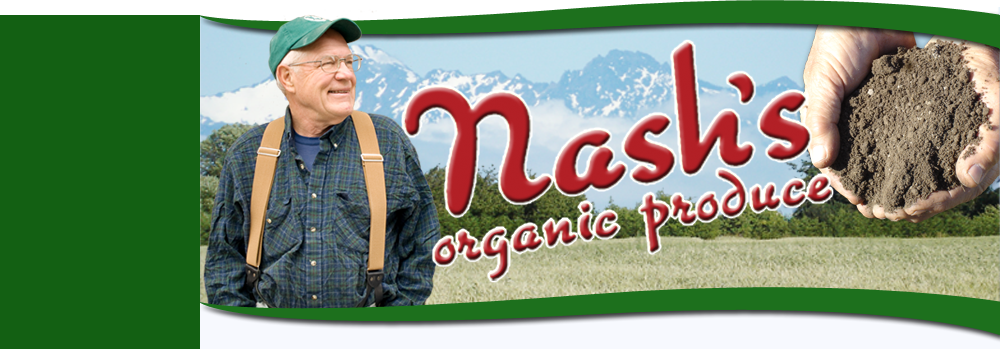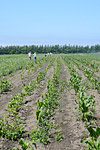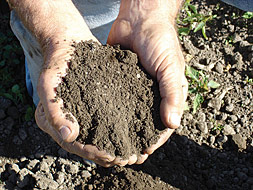 |
Why We Farm Organically
Organic agriculture also makes good business sense. It may cost more to farm without chemicals, but the market for local, organic produce continues to be one of the fastest growing sectors of agriculture in the United States, especially as the public becomes more aware of the health consequences of conventional farming and the true costs of transporting food long distances. Nash Huber's life has followed the arc of American industrial agriculture, from its roots in the family farm, to its culmination as one of the most unsustainable economies ever created by humankind. It is a vulnerable system that depends on cheap fuel to sustain it. The team at Nash's strives to recreate an alternative system, one that fosters sustainability, cooperation and community—the values of the traditional agrarian culture. In order to do that, they grow food the best way-organically—and work to market their produce as locally as possible. Nash's Organic Produce is certified organic, which means representatives from the Washington State Department of Agriculture come to the farm on an A good organic farmer can usually tell whether or not the soil is healthy and has adequate tilth—proper structure and a good ratio of clay, sand and organic matter—to grow healthy crops. How does it feel? How does it smell? Nash Huber and his team of young farmers walk fields, picking up handfuls of soil, squeezing them and letting the grains run through their fingers, taking the measure of the soil and deciding whether they need to do more work on its fertility. |
| next > THE SOIL |





